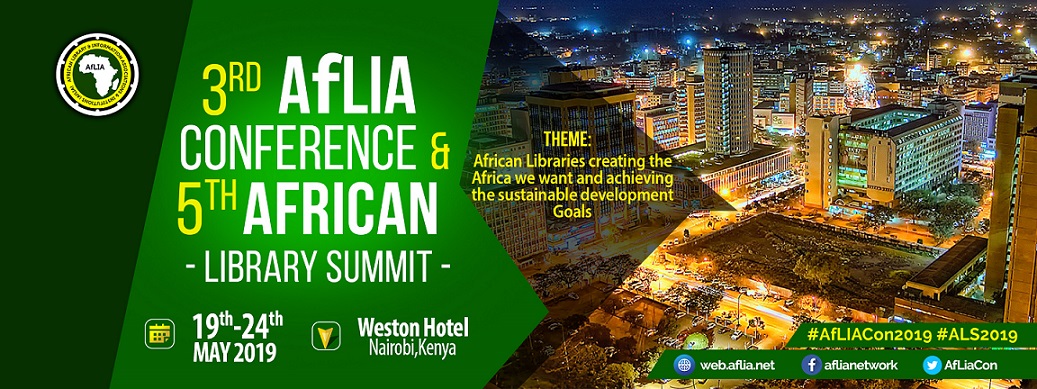

Jason Young and I are headed off to Nairobi to participate in the 3rd AfLIA Conference & 5th African Library Summit, hosted by the African Library and Information Association and Institutions (AfLIA), our partners in the Advancing Library Visibility in Africa (ALVA) project. The theme for the conference is “African Libraries Creating the Africa We Want and Achieving the Sustainable Development Goals,” and we are excited to share how we see ALVA helping to support the conference theme.
This has been a productive year for the ALVA project with our first sustained attempts at data collection focused on library locations growing to over 10 countries. We also have begun our preliminary work on research into attitudes and understandings of libraries’ potential role as development partners that will continue through the remainder of 2019.
The first stage of the project has focused on comprehensively mapping the location of all public libraries across Africa through an online mapping platform. This ongoing work has been supported through substantial assistance of in-country partners, and we have begun collecting data in 11 countries. Additionally, there are another 16 countries who are currently undergoing training or preparing their first efforts at data collection. We hope that by the end of 2019 we will have collected data from at least 30 countries. This dataset will be updated as additional data gets added.
This is the first step to help gain detailed understanding of where public and community libraries are and what they are doing throughout the African continent.
We are also beginning work to help us address other critical questions within the public library space in relation to the library’s role in development. Public libraries and development organizations share many common goals that make them ideal partners. Both groups seek to build strong community partnerships as they implement educational programs, expand access to information and communication technologies, support individuals to pursue new economic opportunities, and much more. In spite of these commonalities, libraries are often overlooked as development partners.
This is often a problem of perception – libraries are not framing their own work in terms of development, and development organizations therefore do not see the potential value in partnerships. The current project asks how public libraries can respond to this perception problem, to demonstrate their value as development partners. What data should libraries be collecting about themselves, so that they can think more strategically about their role in development? And, how can they weave these data into a persuasive story so that they are more visible to development organizations? To answer these questions we will be interviewing development organizations and public libraries, to understand what data collection methods and practices would help libraries to better tell their development stories in a way that resonates with potential organizational partners. Our end goal is to produce solutions that libraries can implement locally in order to help them make connections with these new partners.


